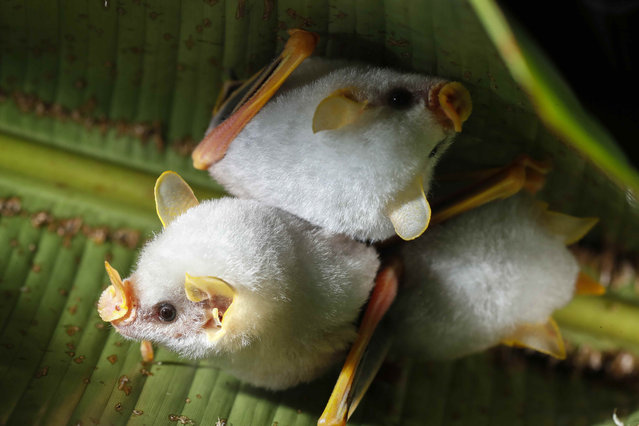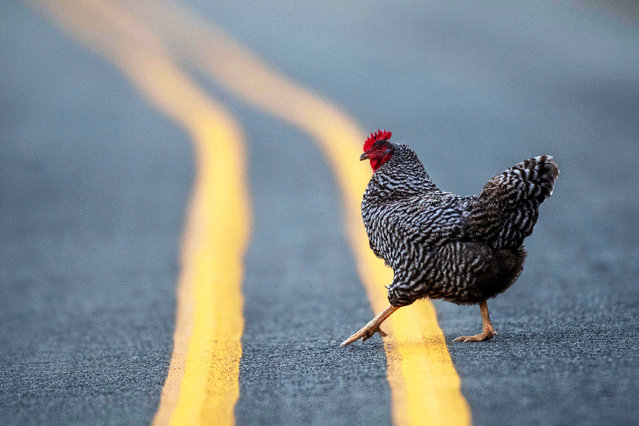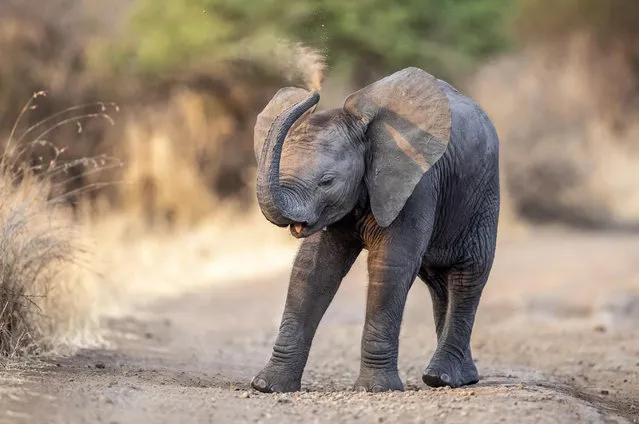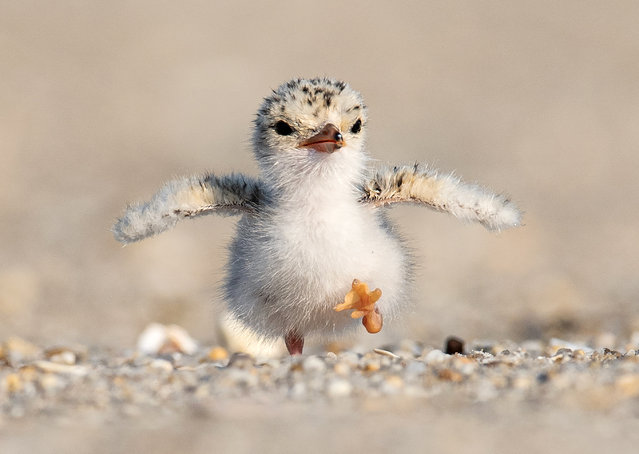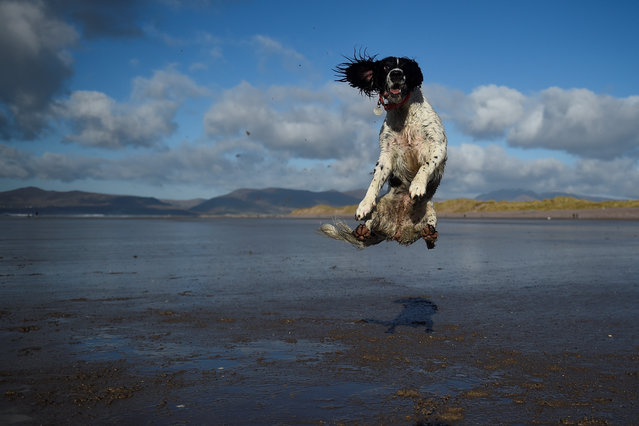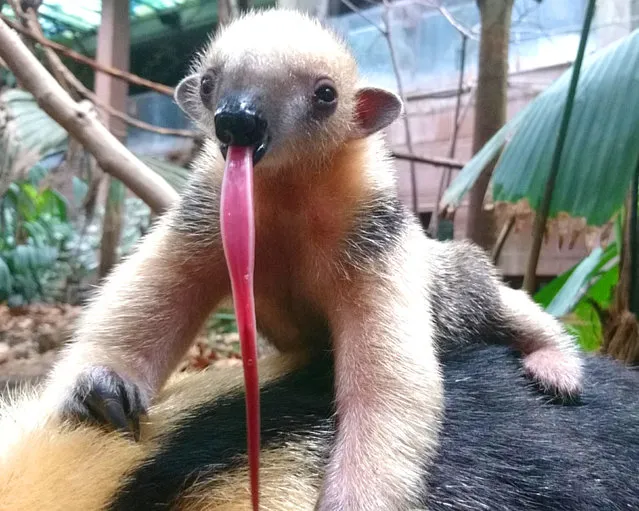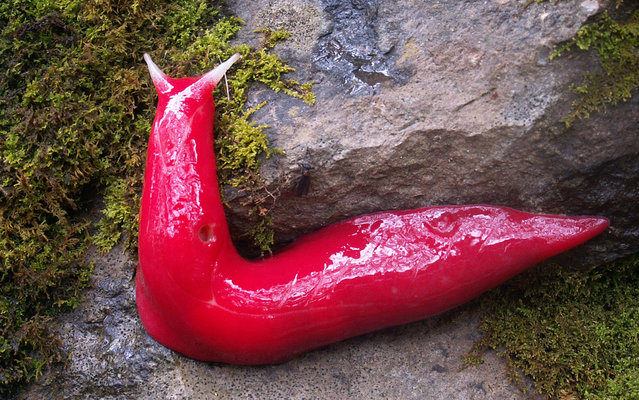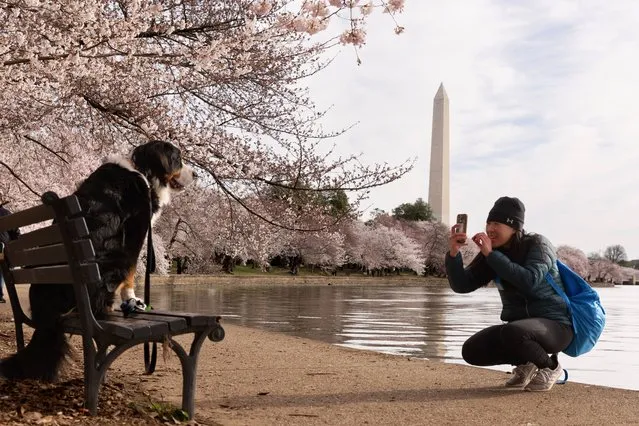
Adrienne Yip takes a picture of her Burmese mountain dog named “Walter”, beneath the cherry blossoms in peak bloom at the Tidal Basin with the Washington Monument seen behind, in Washington, DC, USA, 18 March 2024. Peak bloom, as defined when seventy percent of the cherry blossoms are open, is occuring this week. This year's peak bloom, beginning the 17th of March, is tied for the second earliest in history and is seen as a reflection of warming temperatures. (Photo by Michael Reynolds/EPA/EFE/Rex Features/Shutterstock)
